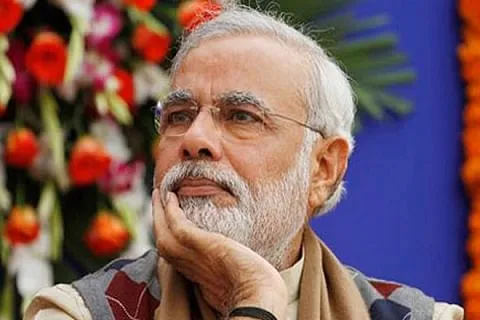Prime Minister Narendra Modi has emphasised the virtues of self-reliance for India at least twice since the beginning of the COVID-19 pandemic. He did so in an interaction with a group of Panchayat leaders and he returned to the theme in his address to the nation on May 12. He spoke of the need for the country to chart a path through this “unimaginable” and “unprecedented” global crisis which would make the present century “India’s century”. That path, he said, was of self-reliance.
Self-reliance and socialism which were the fundamental anchors of independent India’s developmental process passed out of the country’s mainstream socio-economic discourse after the economy’s liberalisation began in the early 1990s. Indeed, many felt that they had held the country back. This feeling increased as globalisation marched ahead and parts of India’s services sector gaining an important foothold in the global market place made significant contributions to the country’s economy.
Certainly, Modi would not like that the advantages to the Indian economy from globalisation in the area of the knowledge industries and in other sectors where the country’s human capital is leveraged be lost. It would therefore be useful to examine his present thinking on self-reliance even though its full evolution and articulation has yet to take place. This is especially because prima facie the idea of self-reliance is at odds with the concept and practices that have developed in this age of globalisation with its global supply chains Modi has attempted to reconcile these contradictions by defining self-reliance in humanistic terms. Both in his speech on May 12 and in his address to the G20 Modi spoke of the need for “Human Centric Globalisation” instead of “Economic Centric Globalisation”. From the viewpoint of idealism there can hardly be any quarrel with Modi’s quest for a focus on humanity instead of economic gain. But how will all this be perceived by international business which would have noted that Modi is now stressing self-reliance. Both would be only too well aware of ideologues within the Bharatiya Janata Party (BJP) as well as its allied organisations who are averse to providing an open field to global business in the Indian economy. International business would naturally ask the question: is India changing its socio-economic course and if so what would be its impact on policy and practice? In particular, how welcoming would India really be of multinational companies notwithstanding all the initiatives taken by the Modi government to spread the red carpet for them.
This question is also relevant because of the government’s current moves to attract manufacturing that is seeking to move away from China. Hence, there is urgent need to explicitly clarify government thinking. Perhaps one way that our policy makers and diplomats may seek to do so emerges from the example that Modi himself provided of the paucity of manufacturing facilities within the country of Personal Protective Equipment (PPE) and N95 masks for medical professionals. He noted that before the pandemic there was not a single PPE manufacturing facility in India and that N95 masks were made in small quantities and that now over 2 lakhs of each are produced every day. The fact is that as China had become the world’s factory many countries were in India’s position; dependent on it for these supplies. This was not a tenable situation.
Clearly, the lesson of COVID-19 that Modi is pointing to is that India must have manufacturing facilities for critical supplies not only in the health sector but also in different areas so that it can meet its needs generally and especially during emergencies. The objective that Modi has put before the nation is fine. But it is one thing to have such an intention and quite another to be able to implement it. It is here that Modi has talked of ushering in far reaching reforms and of five pillars of a self-reliant India—economy jumping forward, world class infrastructure, technology driven systems, a youthful and vibrant demography and meaningful demand. These are laudable if ambitious aims to put before the nation but self-reliance has to contain other ingredients too.
Among them the primary one has to be the production of the latest technologies. Ultimately true self-reliance can only emerge from excellence in critical areas of science. In fact, the leading nations of the world are those that have across the board capabilities in frontier areas of science and technology. Jawaharlal Nehru and other leaders of the national movement were abundantly conscious of this need. Hence, their emphasis on building a network of scientific and technical institutions throughout the country. Their endeavours did not fully succeed but nevertheless did well in some areas like agriculture and in the space and nuclear programmes where Indian scientists and technologists did the country proud.
Manufacturing processes too are undergoing radical changes as the world is in the midst of the fourth industrial revolution with its focus on artificial intelligence, robotics and the internet of things. Modi’s stress on applying technology to Indian systems reveals that he is aware of the importance of technology. The challenge though is how to move all of India coherently forward when many of its parts are at different stages of development amidst vast poverty persists. And this in an age where science and technology are moving ahead so rapidly. That process is most difficult but till that is achieved self-reliance will not become dynamic and self-sustaining.






